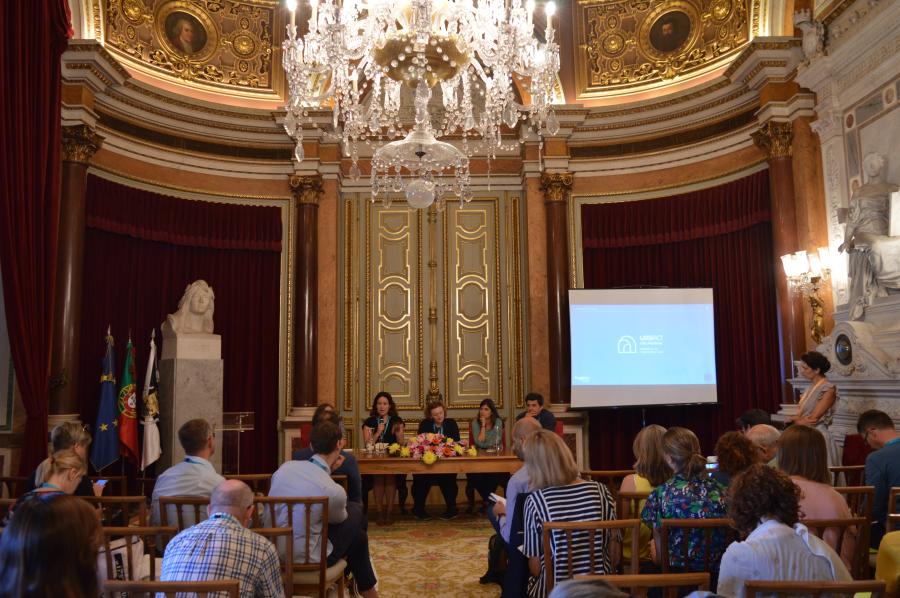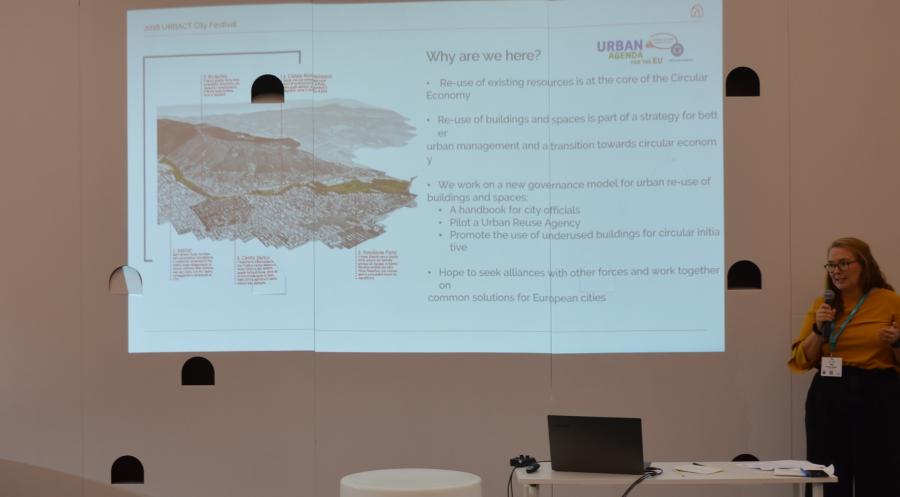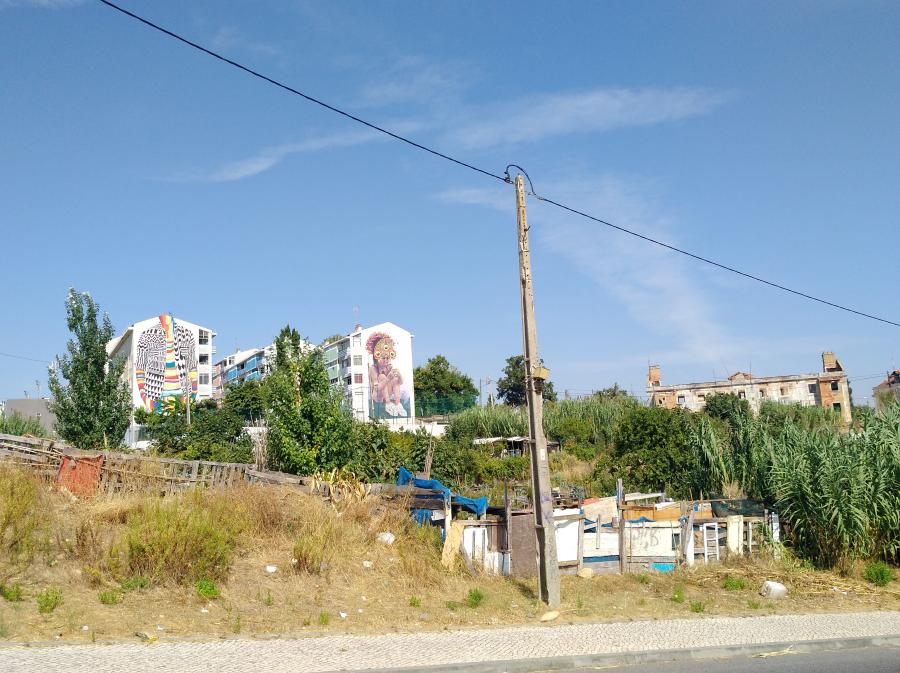Urban practitioners, projects, initiatives, programmes, authorities and policy makers gathered together in Lisbon on September 13-14 on the occasion of the URBACT city festival.
Born in 2015, the festival is organized each year by the the URBACT programme, partner in all UA Partnerships. This year’s edition focused on the provision of solutions to major urban challenges. More than 500 participants from 32 countries contributed to the discussions held over the two days. The Urban Agenda for the EU was presented and discussed as well together with the examples of more than 200 cities working within the URBACT framework.
Coordinators and members from different Partnerships took part in the sessions, trainings and walkshops organized in Lisbon. Michaela Kauer, Co-Coordinator of the Urban Partnership on Affordable Housing, kicked off a dedicated walkshop on Housing and Homelessness, facilitated by Laura Colini, URBACT programme expert and URBACT representative herself in this Partnership. Mrs Kauer introduced the Partnership to the public and questioned the lack of political momentum to bring housing back to the table of discussion of Member States. “Europe is suffering an enormous housing crisis, and it is impacting middle-class families and individuals across the continent”, she said. Sorcha Edwards, from Housing Europe, completed the presentation with additional information on the burden that housing represents for Europeans’ income. Rui Franco, from the Municipality of Lisbon, built on this with the practical example of the city, currently working very hard on the issue of social housing.

Siri Bellika and Marta Bystrowska, from the Partnerships on Circular Economy and Sustainable Land Use respectively, joined the session “Remaking the city”, named after URBACT's tool gathering practical solutions from European cities on tackling underused space. In this context, Ms Bytrowska presented the Partnership’s draftaction 2 to support brownfield redevelopment projects and the use of underused buildings. Ms Bellika followed with a presentation of thedraft Action Planof the Partnership and, more particularly, of draft action 10 on the management the re-use of buildings and spaces in a Circular Economy.


On Day 2, the future of urban cooperation was discussed in a crowded breakout session that captured great interest from participants, particularly eager to hear first-hand the experiences of the cities involved in the Urban Agenda for the EU. In parallel, Ivan Tosics, representative of URBACT in the Partnership on Urban Poverty and coordinator of one of the pilot actions from the Partnership's Action Plan, joined the walkshop “Tackling urban poverty from the ground up”. After presentation of the Partnership’s work, Mr Tosics addressed the different challenges of poverty and deprived areas (further information on this topic is available here). Participants also had the opportunity to explore some real-life practices in the neighborhood of Marvila, a deprived area close to the city centre of Lisbon where community-led development works to rehabilitate open squares, reactivate local commerce and use graffiti to build a new narrative.

A wrap-up session finalised URBACT City Festival 2018, which was also completed by different performances of local art. You are welcome to see the Festival video and the photos. More material will also be published soon on the URBACT website.
Was this information useful? Please let us know via a brief user survey.
- Kérjük, jelentkezzen be, ha szeretne észrevételeket közzétenni.
- Címkék
- Action Plan Circular Economy urban poverty Affordable Housing Lisbon Sustainable Land Use URBACT City Festival marvila

